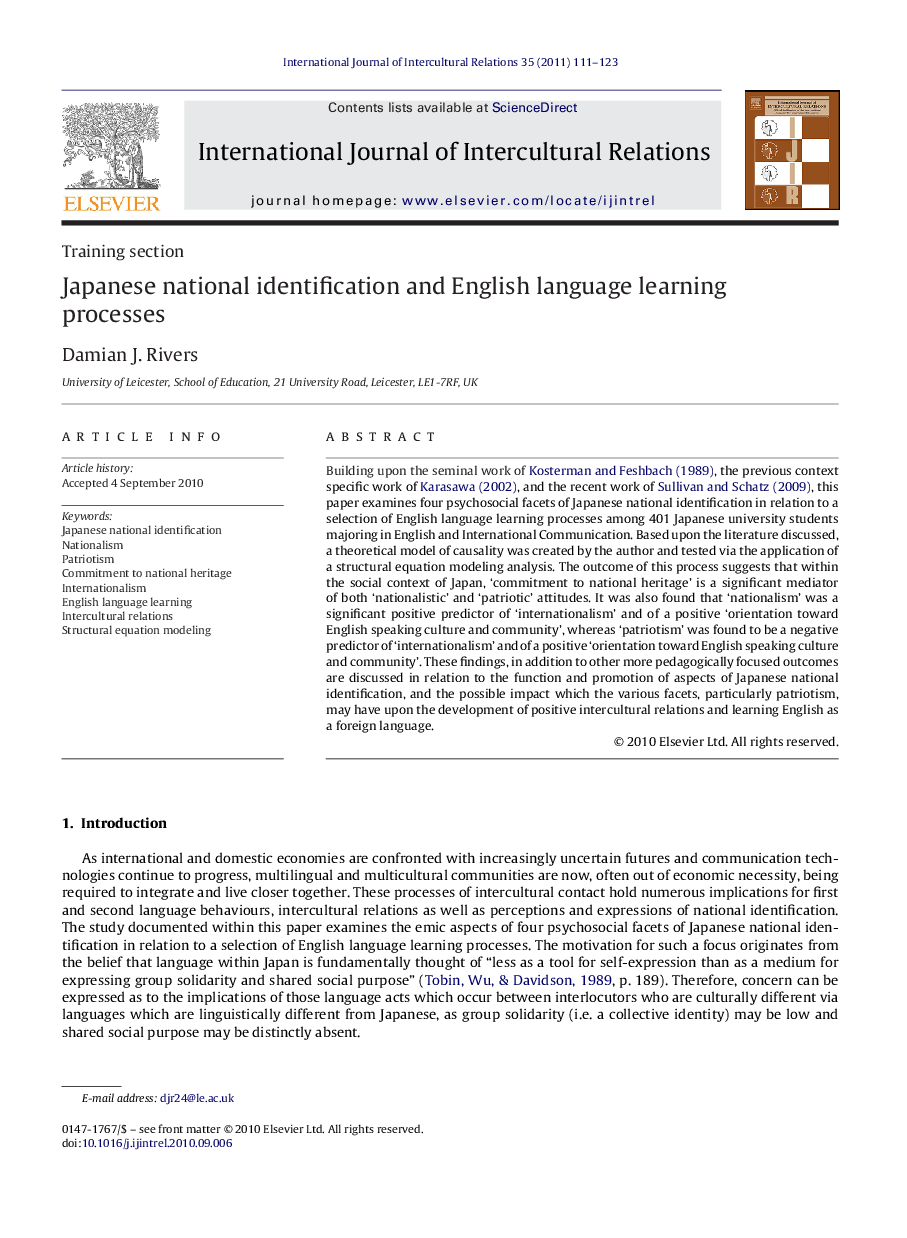| Article ID | Journal | Published Year | Pages | File Type |
|---|---|---|---|---|
| 947499 | International Journal of Intercultural Relations | 2011 | 13 Pages |
Building upon the seminal work of Kosterman and Feshbach (1989), the previous context specific work of Karasawa (2002), and the recent work of Sullivan and Schatz (2009), this paper examines four psychosocial facets of Japanese national identification in relation to a selection of English language learning processes among 401 Japanese university students majoring in English and International Communication. Based upon the literature discussed, a theoretical model of causality was created by the author and tested via the application of a structural equation modeling analysis. The outcome of this process suggests that within the social context of Japan, ‘commitment to national heritage’ is a significant mediator of both ‘nationalistic’ and ‘patriotic’ attitudes. It was also found that ‘nationalism’ was a significant positive predictor of ‘internationalism’ and of a positive ‘orientation toward English speaking culture and community’, whereas ‘patriotism’ was found to be a negative predictor of ‘internationalism’ and of a positive ‘orientation toward English speaking culture and community’. These findings, in addition to other more pedagogically focused outcomes are discussed in relation to the function and promotion of aspects of Japanese national identification, and the possible impact which the various facets, particularly patriotism, may have upon the development of positive intercultural relations and learning English as a foreign language.
